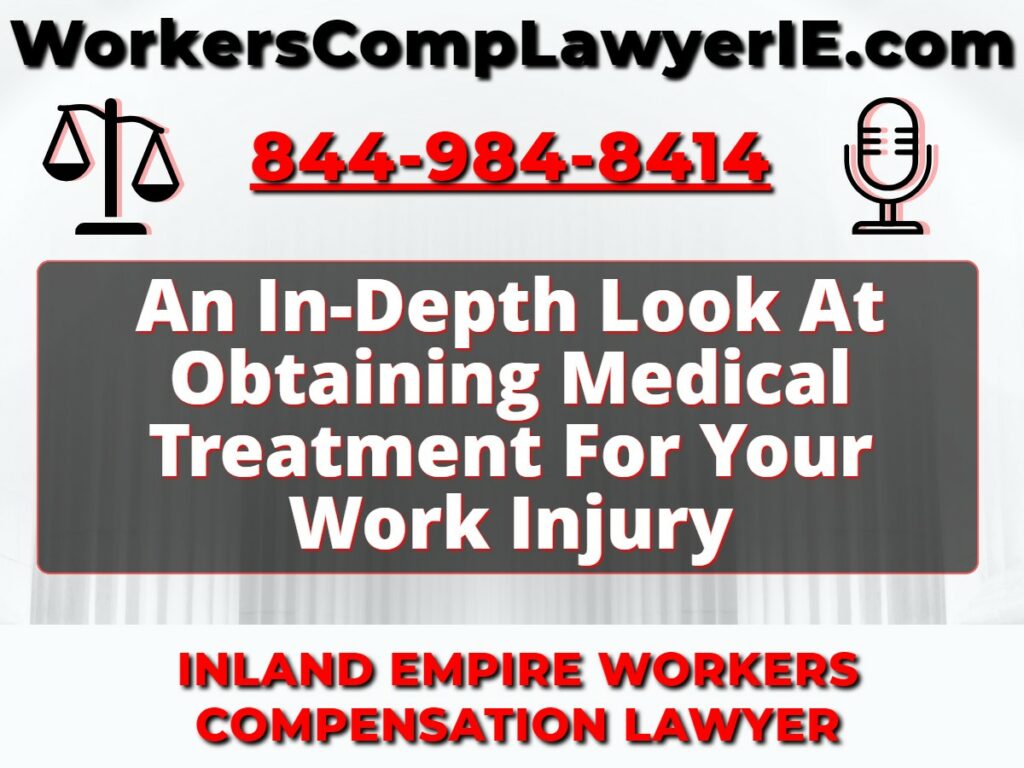An In-Depth Look At Obtaining Medical Treatment For Your Work Injury

Introduction to An In-Depth Look At Obtaining Medical Treatment For Your Work Injury
Workers’ compensation is a critical legal provision designed to protect employees who suffer injuries or illnesses in the course of their employment. An essential aspect of this protection is securing appropriate medical treatment, an aspect of workers’ compensation that is often fraught with challenges. Understanding how to navigate these complexities is vital to ensure injured employees get the care they need.
Understanding Workers’ Compensation in California
Under the California Workers’ Compensation Act, all employers are required to provide benefits to employees injured at work, irrespective of who was at fault for the accident. These benefits cover a broad range of injuries and illnesses, including those sustained due to exposure to harmful substances, repetitive stress, physical accidents, and work-related mental stress.
The Process of Reporting a Work Injury
The success of a workers’ compensation claim often rests on timely and accurate reporting of the injury. Employees must inform their employer about their injury within 30 days, with employers then required to furnish a workers’ compensation claim form within one working day. Following this, employers have five days to report the injury to their workers’ compensation insurance company.
Navigating Medical Treatment in Workers’ Compensation
Securing medical treatment under workers’ compensation can often be a complex process. The Act covers all reasonable and necessary medical care related to the work injury, including doctor visits, hospital services, physical therapy, and medications.
However, California’s system mandates the use of a Medical Provider Network (MPN), a selected network of health care providers to treat injured workers. If an employee is dissatisfied with the treatment provided, they have the right to switch providers within the network.
Challenging a Denial of Medical Treatment
Regrettably, denials of medical treatment are not uncommon in workers’ compensation cases. These can occur due to disputes over the necessity of a treatment, its cost, or the connection between the treatment and the work injury.
Should this happen, an employee has the right to challenge the denial. The process typically involves requesting an Independent Medical Review (IMR) through the California Division of Workers’ Compensation, or potentially taking the dispute to a workers’ compensation administrative judge.
The Role of a Workers’ Compensation Lawyer
A competent workers’ compensation lawyer can play a pivotal role in ensuring that an injured worker gets the medical treatment they deserve. For instance, the case of Mr. James Rodriguez, a construction worker who suffered a severe back injury at work, comes to mind. His employer’s insurance company denied his request for a particular surgical treatment. However, with the help of legal representation, he was able to successfully appeal the decision, resulting in the insurance company covering his required surgery.
Conclusion to An In-Depth Look At Obtaining Medical Treatment For Your Work Injury
Securing the necessary medical treatment for a work injury is a crucial yet complex component of the workers’ compensation process. Expert legal assistance can often make the difference in achieving a successful outcome. If you or someone you know is struggling with this process, we at Inland Empire Workers’ Compensation Lawyer are ready to help. Our extensive litigation experience in this area enables us to fight vigorously for our clients’ rights. Call us at (844) 984-8414 to secure a free consultation.
